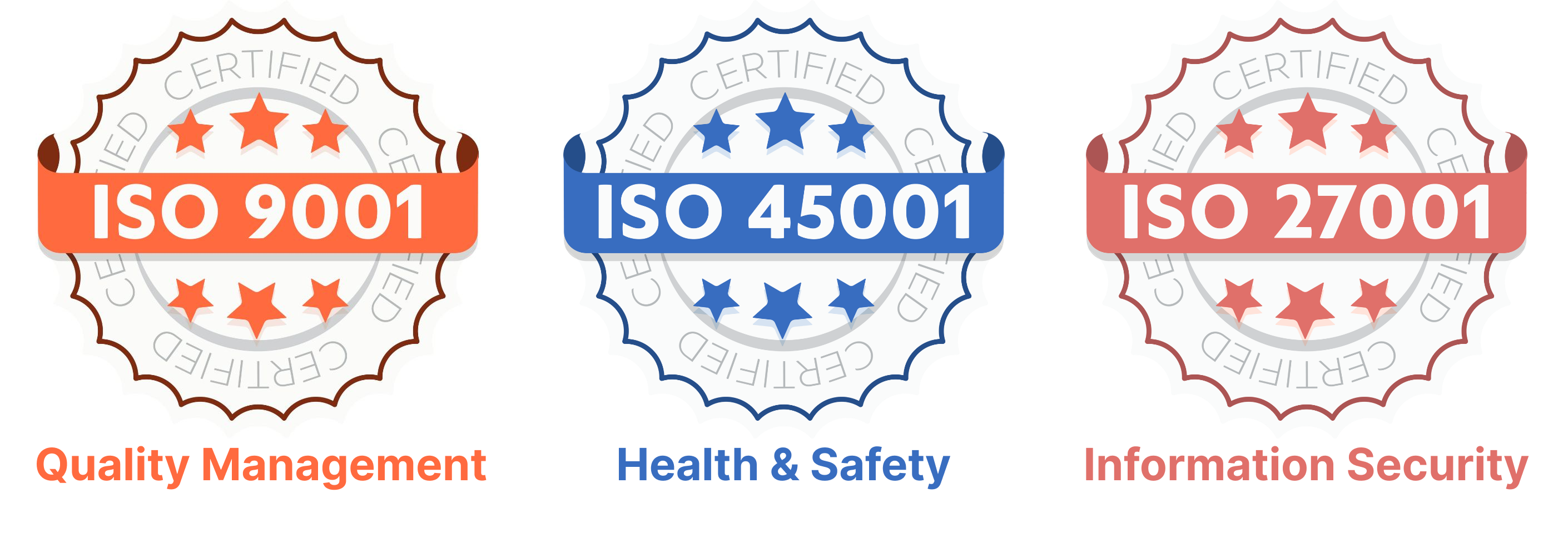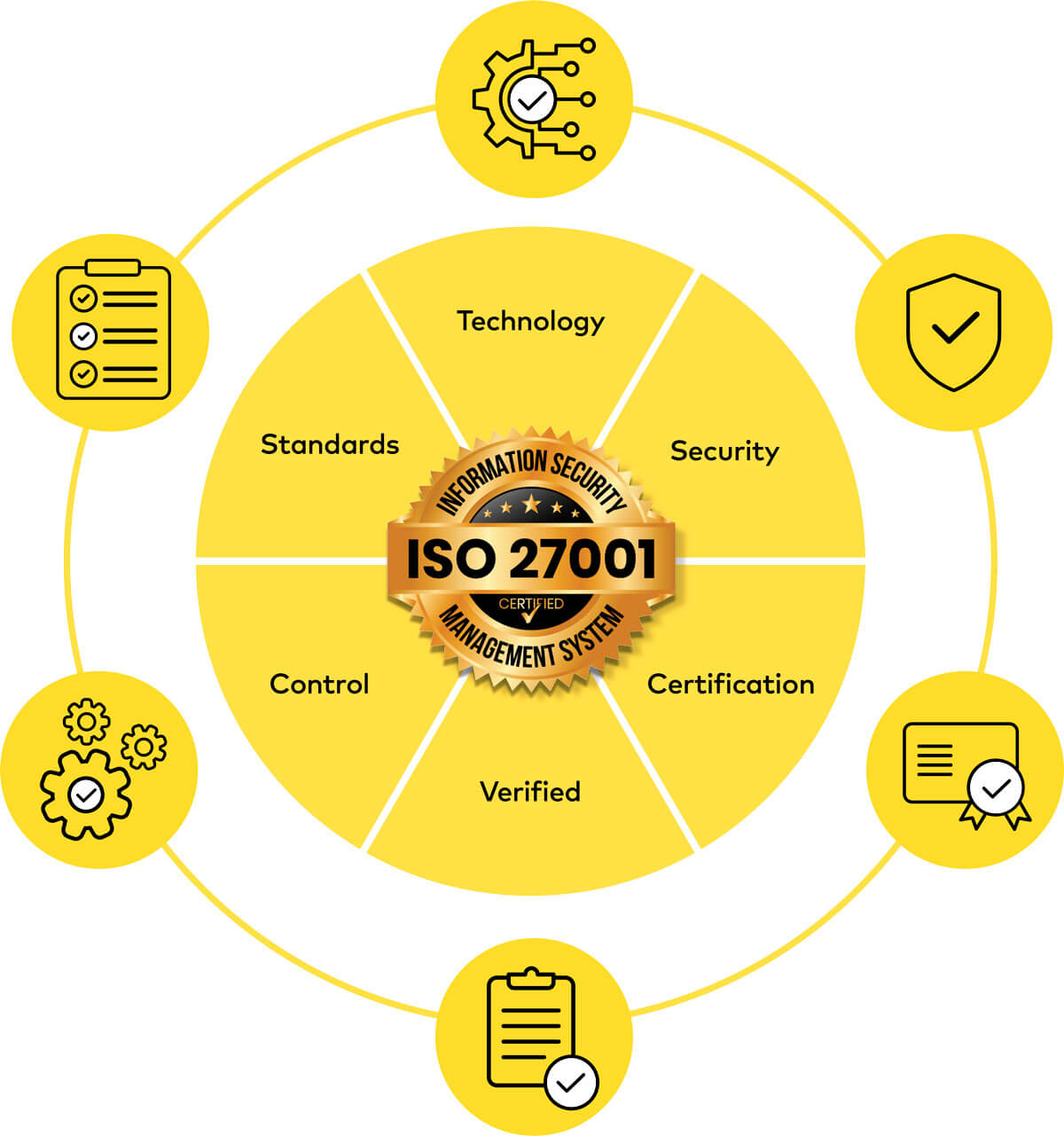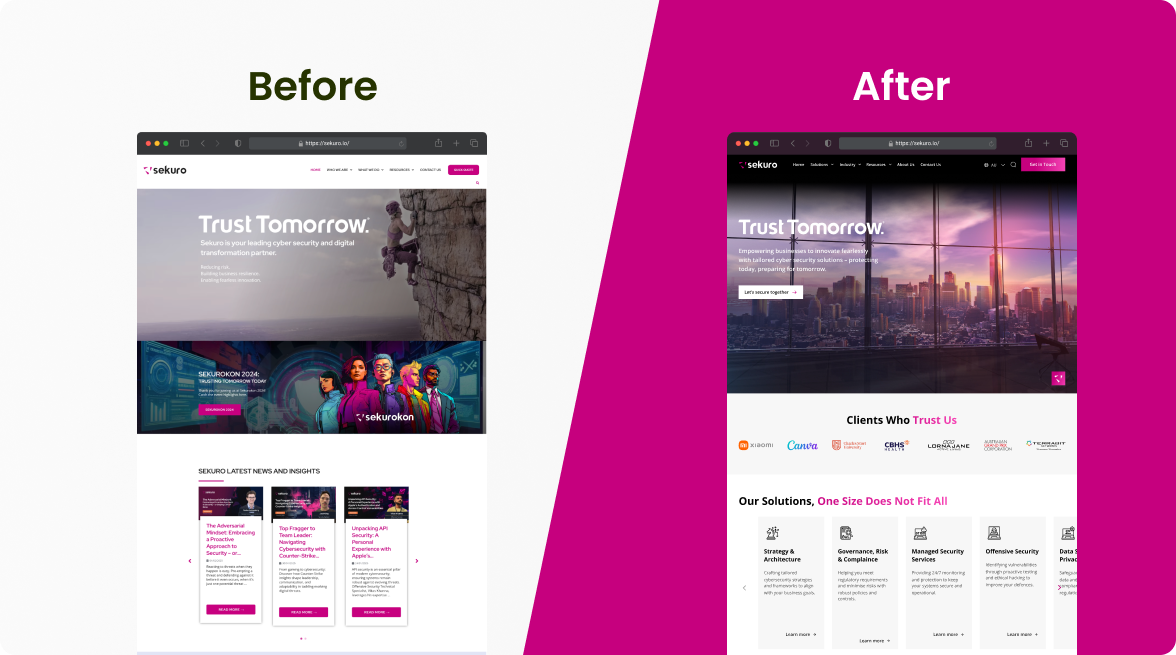You’ve probably come across ISO certifications before. Maybe a client asked if your business is certified, or you lost a tender because you didn’t meet the proper ISO standards. For many companies, especially those in professional services or regulated industries, this is a common obstacle. However, in this article, we will cover how you can easily overcome it and the overall ISO certification cost.
Evaluating if the ISO certification cost is worth it can be a difficult decision. When every dollar you spend needs to show a clear return, investing in certification might seem like a big leap. But, on the other hand, not having ISO certification could be costing you more than you think in the future, in lost contracts, credibility, and client trust. So instead, lets discover the potential costs, key considerations and whether it’s worth it.
ISO Certification and What You Need to Know First
ISO certification is an internationally recognised standard that confirms a business’s commitment to quality, security, or other operational criteria, depending on the specific ISO standard. It shows that your business is serious about what you do, and that your processes, services, and systems meet consistent, globally acknowledged benchmarks.
Whether it’s ISO 9001 for quality management, ISO 27001 for information security, ISO 45001 for occupational health and safety, or another standard—each certification serves a purpose. It signals to your clients and stakeholders that you take your responsibilities seriously.
Benefits of ISO Certification
Imagine you’re bidding for a government project. You’ve got the team, the experience, and the resources, but you’re missing the magic word: ISO certified. The contract goes to your competitor, not because they’re better, but because their certification did the talking.
Some government tenders and corporate projects require ISO Certification to even be considered. And even when it’s not mandatory, having your certification gives you an undeniable edge. It boosts your credibility, reinforces trust, and shows your commitment to best practices.
The ISO Certificate is not just about impressing others. Internally, ISO Certification often leads to improved processes, less waste, and clearer responsibilities. It can help you follow regulatory requirements, manage risks better, and future-proof your business in a competitive environment.
Yes, ISO certification cost money, but it also adds value. Knowing how the cost breaks down can help you prepare smartly
Factors Influencing ISO Certification Cost
There is no fixed price for ISO certification, as costs can vary significantly depending on the specific needs of each business. As a result, certification bodies may charge more for organisations that require additional time and resources. Key factors that impact pricing include:
Company size – A two-person consulting firm won’t have the same costs as a national construction business with multiple branches. More employees mean more processes to assess and more time for auditors to spend.
Industry and operational complexity – A software startup might go through the process faster than a logistics business dealing with dangerous goods and cold-chain compliance.
Certification body fees – These differ depending on who you hire and where they’re located. Some offer competitive rates with no-frills, while others include in-depth audits and value-added consulting. Look for accreditation, industry experience, and long-term support.
Consultancy and training costs – You can go at it alone, but many businesses hire consultants to help with gap analyses, documentation, and training. Some even handle your internal audit. That support can be great, but it comes at a price.
Miscellaneous fees – Things like the audit itself, annual surveillance audits, and recertification every 3 years should be factored in. Don’t forget the cost of your internal team’s time, too. Those hours away from billable work are part of the investment.
ISO 9000 Certification Cost
ISO 9000 refers to a family of quality management standards. While ISO 9001 is the specific certifiable standard, ISO 9000 outlines the fundamentals and vocabulary of quality systems. ISO 9000 is not commonly certified alone; it’s more of a starting point or supplementary resource. Most businesses go for ISO 9001 certification, which brings us to the main point:
ISO 9001 is the most popular ISO standard globally. It focuses on quality management systems and is suitable for most businesses. Not to mention, it also the most in demand when it comes to government tenders.
Costs for ISO 9001 Certifications typically start at $10,000 for small businesses, while larger or more complex organisations might spend over $15,000. This includes preparation, documentation, audits, and training, especially if you’re starting from scratch.
There are also non-monetary costs, like the time and commitment needed from your team to adapt systems and workflows to meet the requirements. But once the certification process is done, you’ll likely have clearer processes, fewer mistakes, and happier customers.
ISO 27001 Certification Cost
ISO 27001 focuses on information security management systems (ISMS).
If you handle sensitive data, especially in industries like law, finance, healthcare, or tech, this certification assures your clients that their data is in safe hands.
Photo Credit: Lumina Australia
You can expect ISO 27001 certification to start at around $40,000, but the price can cost significantly more, depending on your business size and the complexity of your systems. For smaller firms (10 employees or less), the cost could be more around the $15,000 mark.
Not having ISO 27001 could cost you clients. In a world of rising data breaches and privacy fears, security isn’t just a technical checkbox, it’s a trust builder.
ISO 45001 Certification Cost
ISO 45001 is the international standard for occupational health and safety management systems (OHSMS). If you’re in construction, manufacturing, or any industry where workplace hazards are a concern, this certification is more than a nice-to-have. It shows your commitment to a safe, compliant, and responsible work environment.
The ISO 45001 certification costs between $10,000 to $15,000 for smaller companies, but could increase significantly depending on your organisation’s size, risk level, and existing safety procedures. Beyond just ticking the safety box, ISO 45001 helps reduce workplace incidents, and shows due diligence, which protects your business legally and financially.
Hidden ISO Certification Costs
Many businesses stumble here because while they set aside budget for the certification audit, they tend to forget about the groundwork.
You’ll need training sessions, internal audits, documentation reviews, gap analysis, and potentially, software to manage compliance. These pre-certification costs aren’t always obvious upfront but is a significant add-on.
Post-certification, you’ll also need to plan for surveillance audits (usually conducted annually), and recertification every three years. Then there are consulting fees if you bring in an external expert.
Finally, internal resource allocation is a silent budget item. Your staff will be involved in meetings, audits, training, and documentation updates. If you’re not planning for that time, you might end up with overworked teams and bottlenecks in daily operations when the auditor comes around.
How ISO Certification Supports Good Marketing Practices
ISO certification is more than a regulatory tick box. It’s a trust signal you can (and should) leverage as social proof in your marketing strategy.
We’ve worked with clients who’ve used their ISO certification to win tenders, feature it in Google Ads, place the badge proudly on their website, and include it in email signatures and pitch decks. It builds trust and shortens the sales cycle, especially for B2B clients who value reliability and compliance.
According to the International Accreditation Forum (IAF), companies that achieve ISO certification often report measurable improvements in lead generation and client conversion. ISO badges can improve first-impression credibility, and signal that your business meets globally recognised standards.
Final Considerations on ISO Certification Costs
ISO certification costs vary depending on factors such as your business size, industry, level of preparedness, and the certification body you choose. It’s not just a one-time fee. It’s an ongoing commitment. Surveillance audits are typically conducted annually to ensure continued compliance, and full recertification is required every three years.
Most businesses don’t realise until it’s too late that lacking certification can cost far more in missed opportunities. Without it, you may lose tenders, be overlooked for contracts, or watch clients walk away simply because certification wasn’t in place.


























































